Your heart is pumping through your chest, the most badass song you know is blasting in your ears and mixing with the sound of your blood pounding, you’re light on the balls of your feet, dancing side-to-side, trying to stay warm and loose. You’re up next on the board and waiting for the match in front of you to finish—all of a sudden, the kid gets pinned, and your turn to step up to the mat is earlier than you thought. Whip off the sweatpants and t-shirt, while carefully avoiding the wrestling shoes, hand over your big, over-the-ear studio headphones to your teammate, strap on the headgear, and head out to the mat. Tell the scorekeeper your name, confirming it’s you, and make your way to the center of the mat—all eyes on you. The referee tells you to strap the green velcro around your ankle. So you do, and you continue to move restlessly, while your opponent is strapping the red around his ankle. You avoid eye contact with him and get in your staggered stance. You shake his hand when the ref says to—and the whistle blows.
Wrestling is the most intense sport I’ve participated in, and if you ask just about any athlete that has tried it, they’ll likely say the same. There really isn’t anything else like it. I love the sport and everything it stands for and what it can help people become. Getting through a season with a team is a feat. In dedicating yourself to grueling three-hour practices four days a week and competing on the other two (Wednesday night dual meets and Saturday quads or tournaments go all day), you never really get much of a break.
Many of the sports in popular culture today are team sports that involve relying on teammates in order to achieve a goal. There is always the opportunity to blame someone else when something goes wrong in a game, always the ability to put the responsibility of a loss on someone other than yourself. Blaming someone else for your failure is impossible in wrestling. It’s you and your opponent on the mat—no one else. Every little failure and every little victory is all yours. Wrestling is not for people who cannot handle being put into the spotlight. Taking the risk of getting pinned in the first period is always an embarrassing possibility. Wrestlers must take responsibility for everything that goes on in a match, resulting in athletes who can take that attitude to other aspects in their lives, who can look at their own performance and assess it honestly in order to improve themselves. Because without this quality, no one could become a good wrestler.
Not to say that wrestling is not a team sport; in many ways, wrestlers rely on their teammates. They’re the people that you practice with every day, the ones that allow you to improve and get better. Good teammates allow you to practice the muscle memory needed to perfect moves while not allowing you to get away with stupid mistakes. Practices should consist of constructive criticism from teammates and coaches alike, and wrestlers need to be able to take it. And this is the same with any sport: In order to get better, athletes must constantly be working on improving their weakest aspects.
So, what really differentiates wrestling from other sports? What attracted me to it? The answer: the fast pace, the strategy, the technique, the aggressiveness without the damage. When I was younger, I tried soccer, basketball and baseball and found that I was at the bottom of the athletic ladder at each. Before I joined wrestling in high school, I had done both crew and track, taking up rowing and long-distance running. I had grown tired of the monotony of these sports; during the indoor track season, I often found myself watching the wrestling practices and wondering, “What if?” Wrestling looked strategic, dynamic and technical, and it turned out to be everything I thought—and more. I won’t deny that a part of me was attracted to the aggressiveness of it as well. I had always thought combat sports seemed like something I would like to do, but I never wanted to risk serious injuries and concussions. Wrestling came to satisfy all of that.
Like any sport, wrestling culture has a downside. The intense attitude required of wrestling appeals to many, but it comes at a cost: The largest problem within the wrestling community is extreme weight cutting. Matches are organized according to weight classes, and so ideally, every wrestler wants to be as lean as possible in order to have a strength advantage. Many wrestlers take this too far and end up cutting weight to extreme levels—getting down to dangerously low body fat percentages—by literally starving themselves, taking laxatives, dehydrating themselves and obsessively running in full sweats after not eating for days and drinking minimal amounts of water. I remember cutting weight during my junior year of high school to get down to 126 pounds, which is pretty difficult for someone standing at 5 feet, 10 inches tall. To shave off the last five pounds, I had to starve myself for four days, eating only a bag of peanuts and an apple while running twice each of those days before weighing in at a tournament. The ecstasy of seeing the 124.9 on the scale was indescribable. By my senior year, I didn’t bother to cut weight and told my coach I was going to wrestle at whatever weight I was at.
Despite cutting weight, which can be avoided, I have only positive things to say about wrestling as a sport. It teaches you to take responsibility for your own wins and losses, to improve yourself, to focus your mind, to practice dedication, to strategize, to become a better sport. Wrestling is one of the oldest sports in the world, dating back as early as the Sumerians 5,000 years ago and appearing in the ancient Greek Olympics, and will probably be here for a long time to come.
Nicholas Remillard can be reached at [email protected].

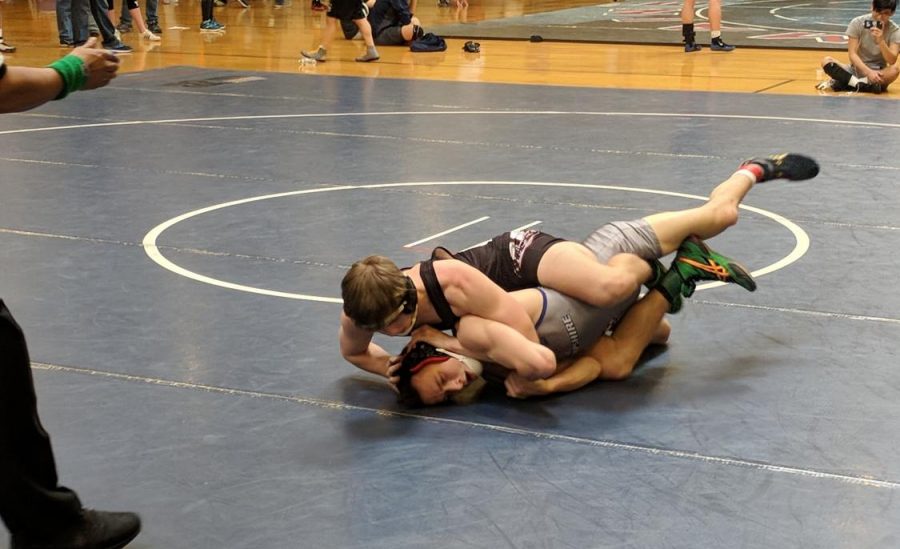


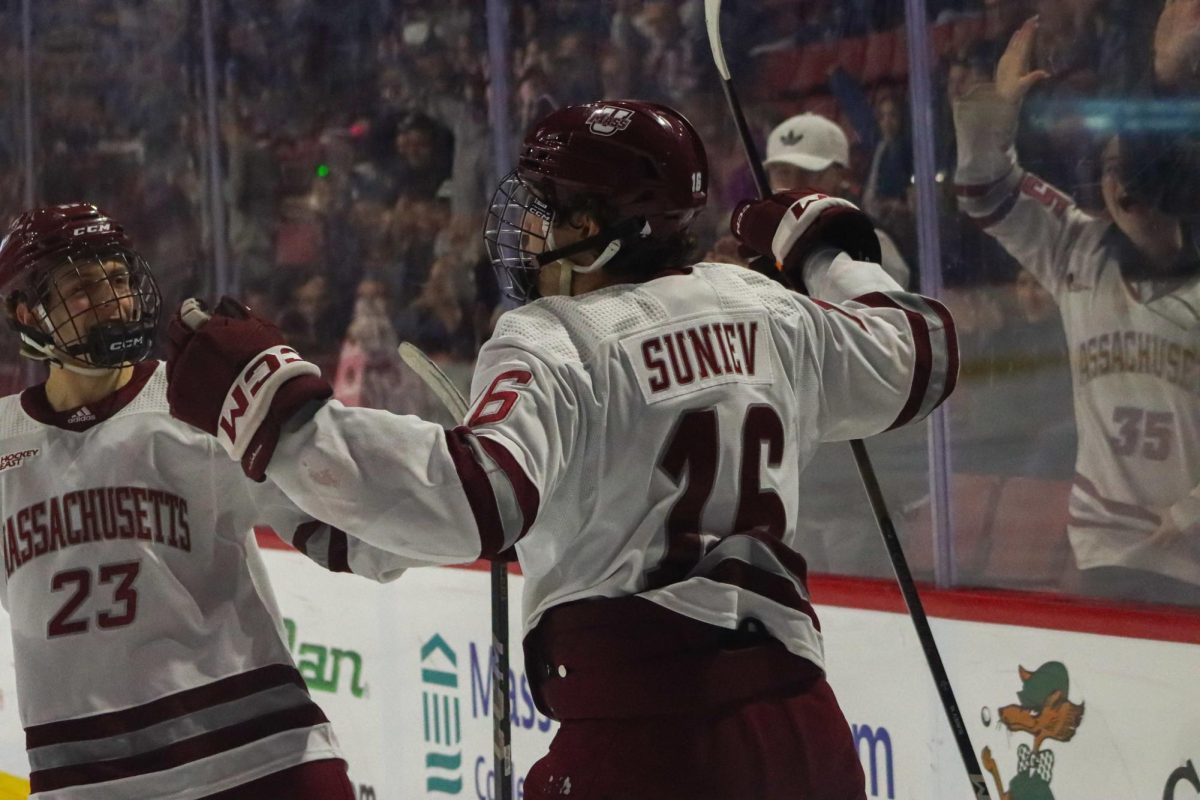
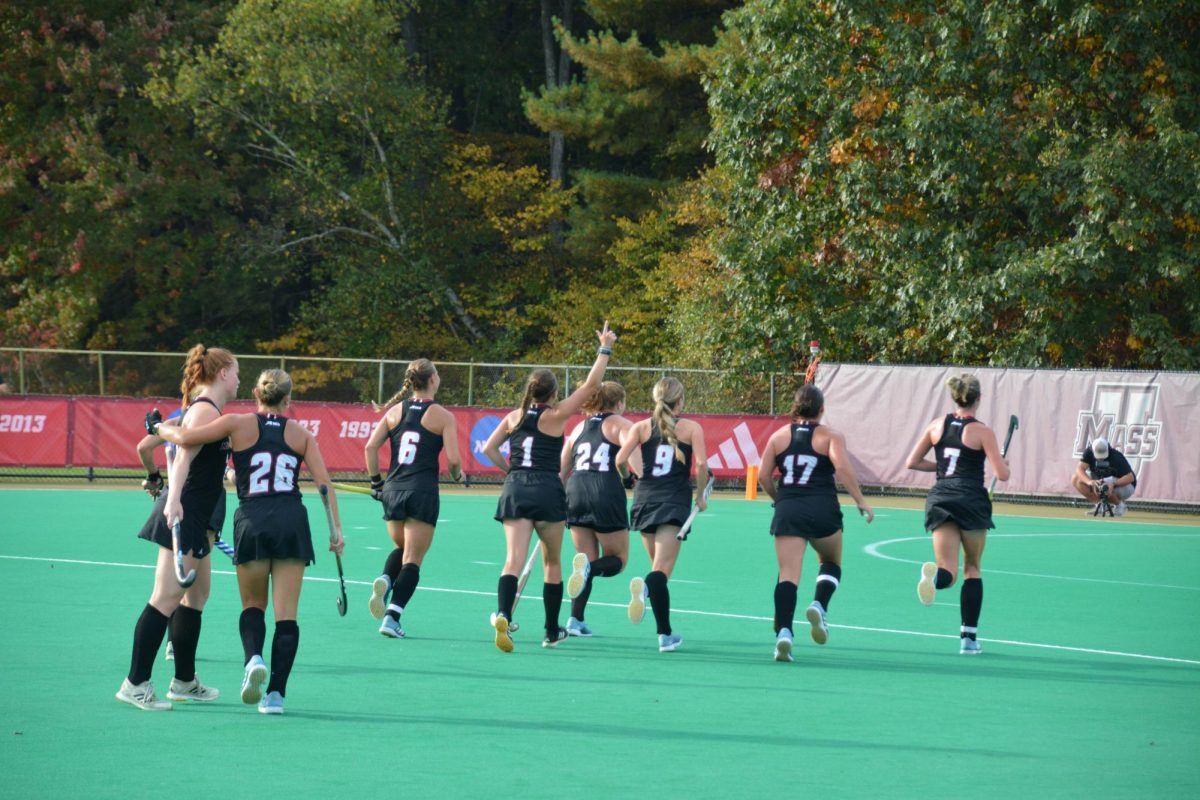
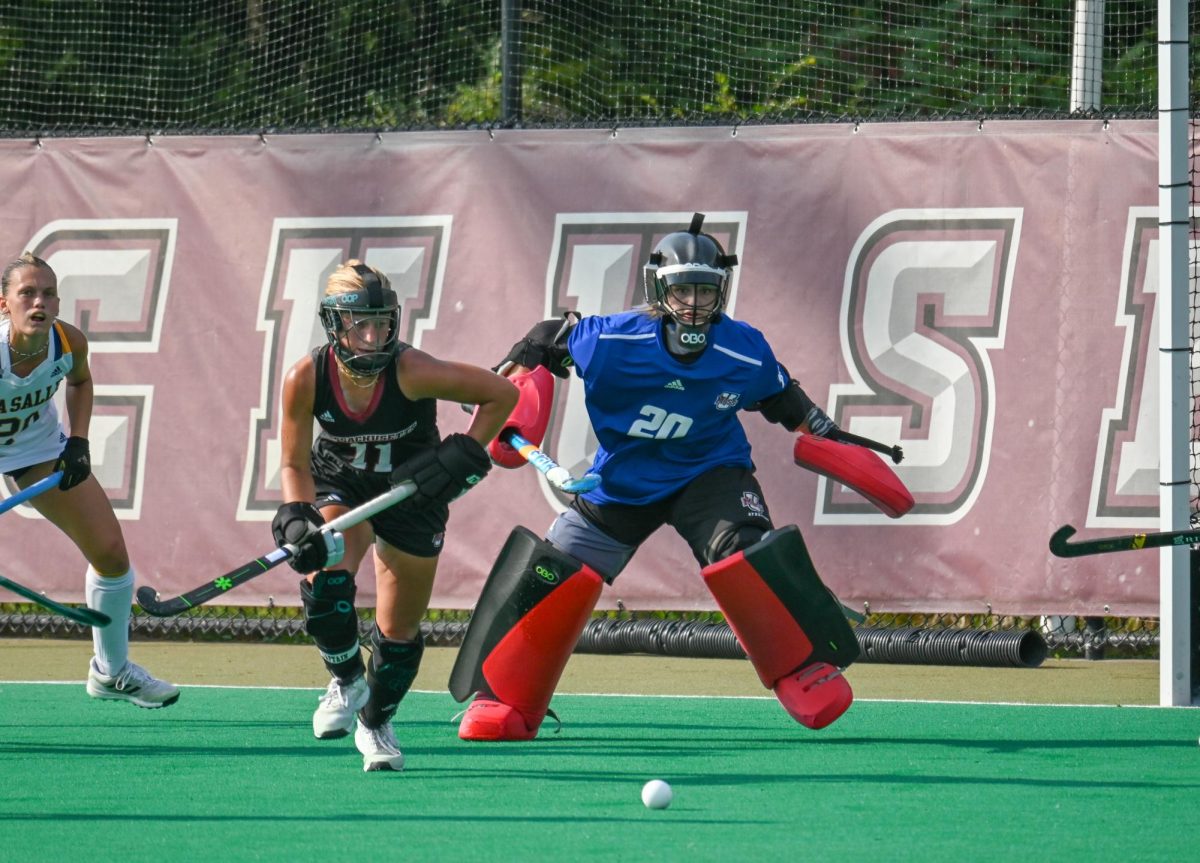
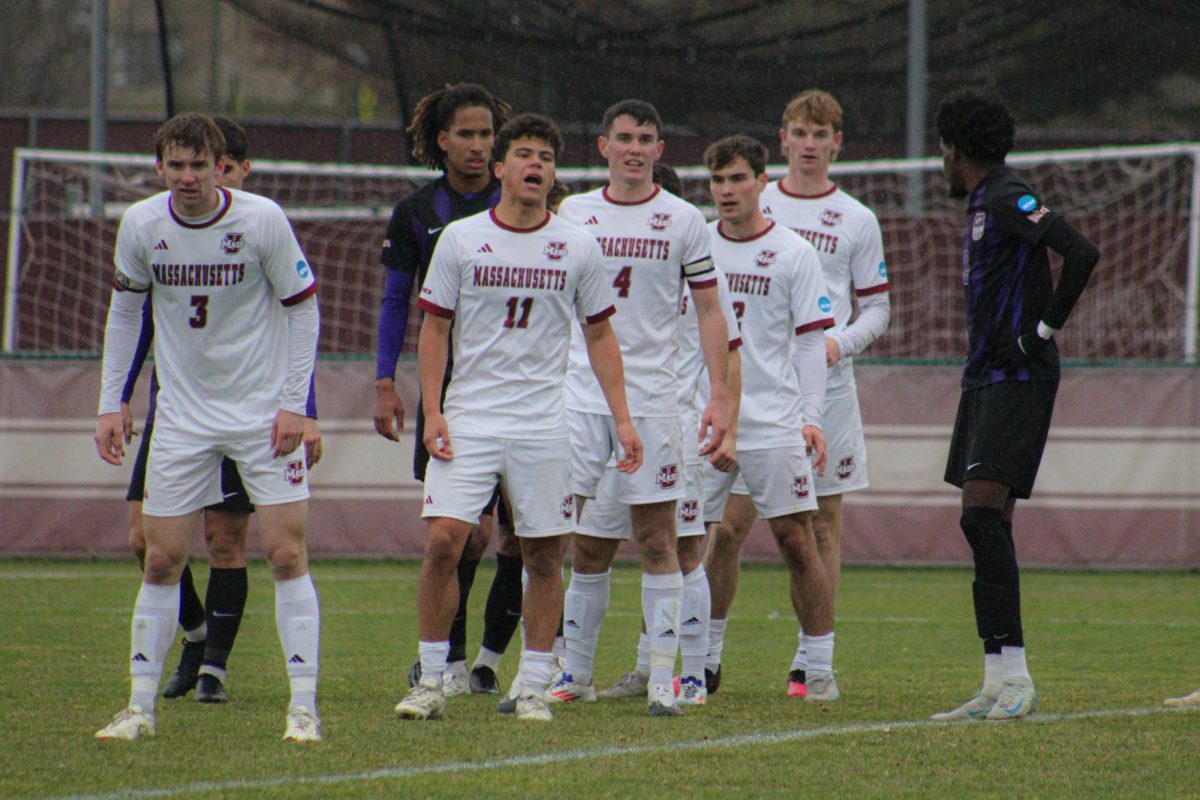
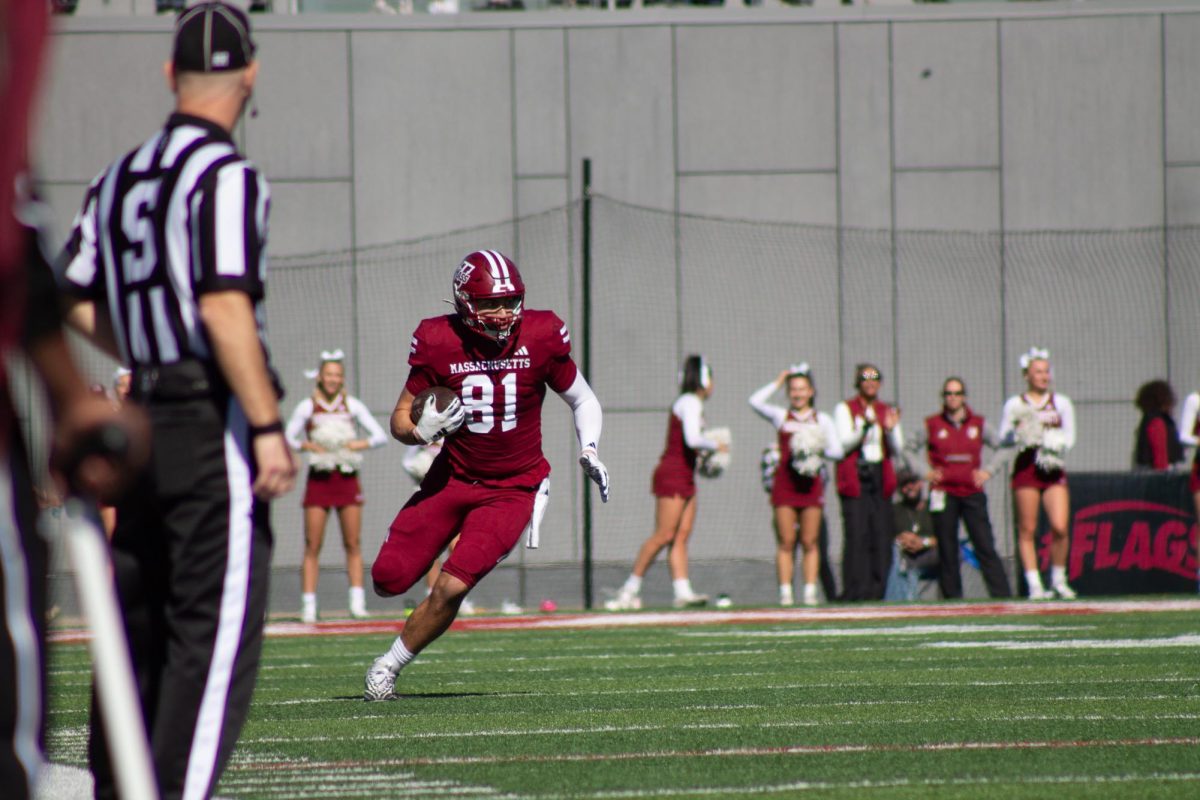












Coach • Apr 27, 2022 at 5:14 pm
Character is not developed in comfort and ease. I have been involved with this sport as a competitor, referee and coach for 61 years.
I love it~
Aidan Gillings • Apr 13, 2018 at 11:03 pm
I love wrestling I’ve competed in this sport for 6 years and have became a better person overall. I love the sport.
Grampa a • Apr 13, 2018 at 1:56 pm
Hi Nicholas, grandpa gave me this to read. I loved it,, it was so interesting g. Good for you ! Looking forward to seeing again soon
C
I do not do very well on this thing. But I love you lots. Bye bye. Grandma
Grampa • Apr 13, 2018 at 12:55 pm
Excellent article. A plus!